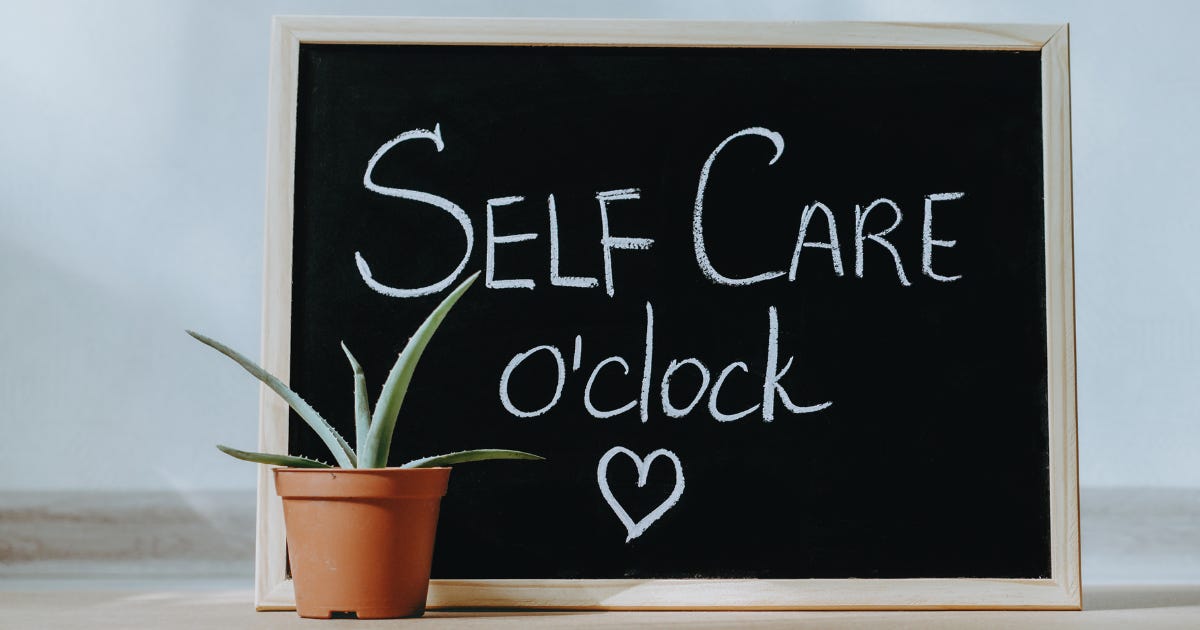Be kind to your mind
As the holidays draw closer, remember that self-kindness is one of the greatest gifts you can give yourself.
As the Christmas week approaches, it’s easy to get swept up in the excitement: shopping lists, family gatherings, a break from work. How magic! But, in the midst of all this magic, in the midst of spreading kindness to others, how often do we pause to offer the same care to ourselves?
The end of the year can be a time of joy and connection. Personally, I love it. But it can also bring stress and self-reflection that may even lead to self-criticism. Did I achieve enough this year? Have I let others down? These questions often creep in during the holidays, potentially amplifying feelings of inadequacy or overwhelm.
This holiday season, I want to encourage you to embrace an alternative approach: be kind to your mind (a slogan I came across this week and couldn’t resist writing about it!). Although, note that self-kindness isn’t just a feel-good concept. It’s a science-backed practice with real benefits for psychological wellbeing. It’s also a powerful tool for resilience, as it enables us navigate life’s challenges with greater steadiness and grace.
Let’s explore how embracing self-kindness this holiday season can transform how you care for yourself and set the stage for a resilient mind and a fulfilling year ahead.
The Science of Self-Kindness
Again, self-kindness goes beyond simply “being nice” to yourself. So, imagine this: a close friend comes to you feeling defeated after a tough day at work. How would you respond? You’d probably listen, offer encouragement, and remind them of their strengths, right? Self-kindness is about extending that same care and understanding to yourself, especially during moments of self-doubt or challenge.
Now, as a psychologist, let me share something interesting. We psychologists love scales, which are simply tools we use to measure things like emotions, behaviours, or traits. One recent study investigated one such tool called the Unconditional Self-Kindness Scale(USKS) [1]. This is simply a way of understanding how people respond to tough moments, like failure or criticism. The study revealed something fascinating: self-kindness acts like a protective shield in these situations, softening the blow of self-criticism and helping people recover emotionally. In a way, it’s like a boost to your psychological immune system: the inner processes that help you manage stress and bounce back from adversity.
Self-kindness is often mistaken for self-compassion, but they’re not quite the same. While self-compassion includes elements like mindfulness and a sense of shared humanity, self-kindness zeroes in on nurturing yourself during tough moments. It’s about deliberately offering yourself support (without judgment) when you need it most. The study found that this simple practice can be incredibly powerful, helping to regulate emotions, ease anxiety, and boost overall wellbeing.
Why does this matter? Because self-kindness is not a luxury. It’s a necessity. Especially during high-stress periods like the holidays, it truly can be the difference between feeling overwhelmed and finding inner-piece.
Why the Holidays Can Be a Time of Self-Threat?
For many, the holidays are a season of joy and connection, but they can also stir up unexpected feelings of stress, inadequacy, or self-doubt. As the year comes to a close, we’re often prompted to reflect on achievements, setbacks, and everything in between. It’s natural to assess whether we’ve met our goals, but this reflection can quickly turn into self-criticism, especially when it feels like we’ve fallen short.
The festive celebrations add their own pressures: the push to create “perfect” holiday moments, the financial strain of gift-giving, and the comparisons sparked by social media. Together, these can amplify feelings of insecurity, leaving us questioning our worth and abilities.
But here’s the truth: it’s okay to feel this way. These moments, while uncomfortable, are opportunities to practice self-kindness. Through acknowledging these feelings instead of pushing them aside, we give ourselves the chance to navigate them with care and compassion.
How?
Practical Ways to Be Kind to Your Mind
Self-kindness doesn’t have to be complicated. Here are four creative ways I came up with to give your mind the care it deserves this holiday season:
Take a break from self-improvement
Amid the end-of-year rush, it’s easy to get caught up in setting up goals, “fixing” what went wrong in the past year. But self-kindness sometimes means giving yourself permission to just be. Resist the urge to set lofty resolutions right now. Let your mind rest instead.
Redefine success for the season
Not everything has to be perfect. Success can be something as simple as enjoying a quiet moment at home, finishing a task that’s been lingering, or even saying “no” to an unwanted commitment. Celebrate the small wins that often go unnoticed.Treat Yourself as a Guest of Honor
Imagine you’re hosting yourself this holiday season. What would you do to make your guest feel welcome and cared for? Whether it’s cooking your favourite meal or carving out time for a hobby this approach turns self-care into something intentional and joyful.Be Your Own Encourager
We often wait for others to cheer us on, but why not cheer for yourself? Write yourself a note of encouragement or mentally list three things you’ve done well this year. Self-kindness starts with identifying your own efforts and strengths.
A Holiday Gift for Your Mind
As the holidays draw closer, remember that self-kindness is one of the greatest gifts you can give yourself. It’s not about perfection or fixing every flaw. It’s about treating yourself with the same compassion you’d offer to a friend. Whether that means taking a break, celebrating small wins, or simply letting yourself rest, these moments of care are what keep your mind resilient and ready for whatever comes next.
This holiday season, let self-kindness be your anchor. It’s a practice that not only soothes the stress of today but also builds the emotional strength you’ll carry into the new year.
Key Takeaways:
Self-kindness is essential: treat yourself with the same care you’d offer a close friend, especially during moments of stress or self-doubt.
The holiday season can amplify self-criticism, but it’s also an opportunity to practice compassion and care for your mind.
Small, intentional acts of kindness like redefining success or celebrating small wins can boost your psychological resilience.
Self-kindness builds emotional strength, helping you navigate challenges today and setting the stage for a stronger tomorrow.
Pause & Reflect :
What’s one way you can be kinder to your mind this holiday season?
Reference List:
[1] Smith, B.W., Guzman, A. & Erickson, K. The Unconditional Self-Kindness Scale: Assessing the Ability to Respond with Kindness to Threats to the Self. Mindfulness 9, 1713–1722 (2018). https://doi.org/10.1007/s12671-018-0912-5
This study introduces and validates the Unconditional Self-Kindness Scale (USKS), a tool for assessing self-kindness in moments of self-threat.
de Lima, D. (2024). What makes a resilient mind?. Tiny Brain.
This book offers a fresh perspective on resilience through the lens of the psychological immune system, providing practical insights and strategies to cultivate mental strength and well-being.
Image source : Canva Pro





